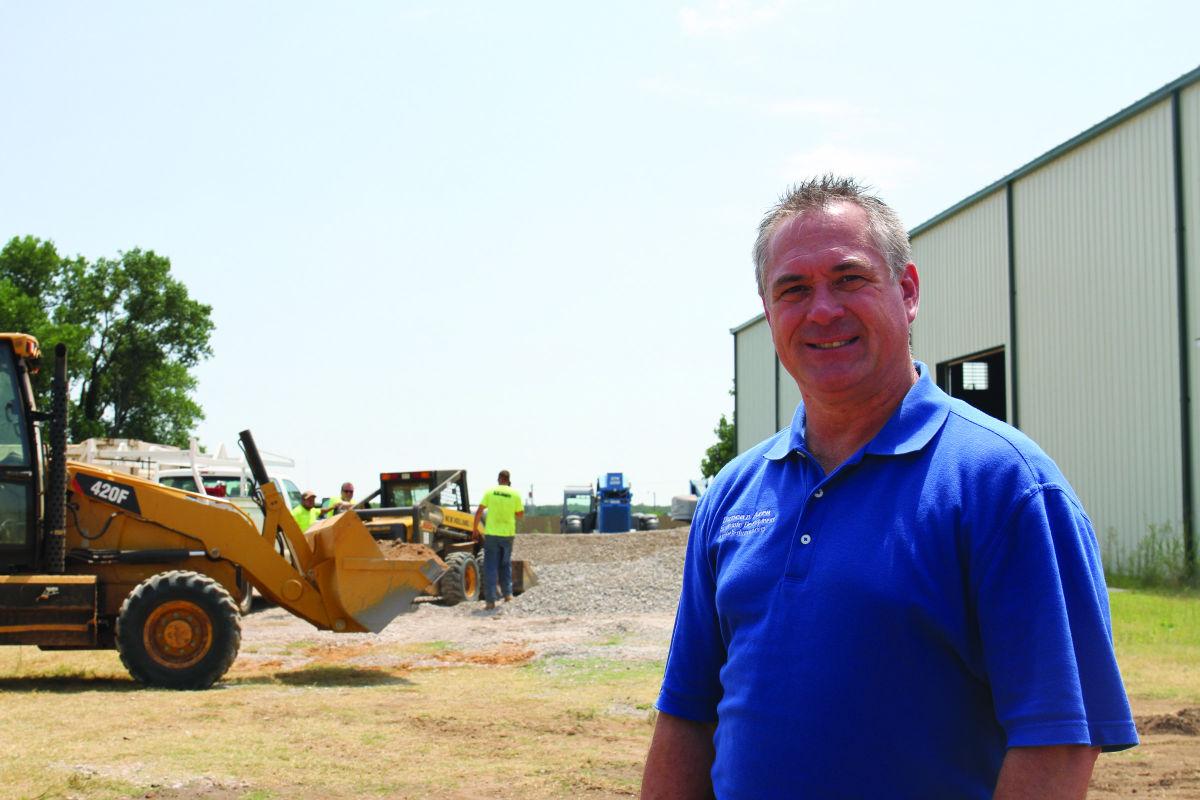DAEDF’s Lyle Roggow Heading Oklahoma’s Incentive Evaluation Commission
February 26, 2016
By Charlene Belew The Duncan Banner

Duncan Area Economic Development Foundation President Lyle Roggow now leads the Oklahoma Incentive Evaluation Commission as chairman. Charlene Belew/The Duncan Banner
A Duncan man who has a mission of diversifying Duncan’s economy and creating new jobs each year now fills the chairman position for Oklahoma’s Incentive Evaluation Commission.
Lyle Roggow, Duncan Area Economic Development Foundation president, started the position with the commission, comprised of five people, on Thursday. The commission is tasked with reviewing 70 different incentives over the next four years and will decide if these incentives need to be reformed, improved upon or let go of altogether based upon how much benefit they are actually providing to the state through diversification of the economy and attracting new business.
Facing and potentially helping shore up a $1.3 billion budget hole also rests on the commission’s table.
“I think there’s some good outcomes we’ll be able to look at as we do this,” Roggow said. “I understand the revenue shortfalls that are in line with the budget and the crisis we’re in.”
Roggow said the first process is to hire an outside group to help evaluate each incentive based on certain criteria.
“That criteria has not totally been set by the commission itself,” Roggow said. “I think there’s some ideas according to the legislation that was passed last year and so that’s kind of the starting point for it. Our next meeting ... we will have in front of us who has bid on the project to help us evaluate – and these are companies that do this with other states as well, to evaluate the incentives to see if they are effective from the state’s side or not effective, or what was the net benefit to the state and to the communities, and so we’ll look at each and every one of those types of things as we go through it.”
Over the four-year-long process, Roggow said the commission will dissect about 17 each year to find out if they are effective for the state.
“We’ll have some guidance and have direction and be able to give input, and then we’ll go into the rule making process and help strengthen and help develop those goals that are centered around that,” Roggow said.
This includes examining the goals of each incentive and determining if there’s a better way to reach those goals, and if so, outlining how to achieve them.
“It doesn’t mean we’re getting rid of all of the incentives or getting rid of some of the incentives,” Roggow said. “Those decisions will be made as we go through each of the steps.”
But because Oklahoma – and the Duncan community – rely so much on the oil industry for money, Roggow said chopping every single incentive may not be the best way to go, especially since other businesses help cushion the blow during oil busts.
“The thing that we all have to really focus on is if we start to eliminate incentives, then we could narrow the field and the scope of attracting new business industry to the state or we could even lose certain companies that might be here and could leave and go elsewhere,” he said. “When you do that, you also have a loss of population and a lot of other things start to trickle into the equation as well. We’ve got to stay competitive. We also have to do things that are smart. I think the evaluation is a first step moving forward.”
Roggow discussed the difference between certain incentives, noting some are performance based and not just “free giveaways.”
“We’re going to have go through and see what those economic outcomes really do look like in the analysis process,” he said.
“There are some challenges with (incentivizing businesses) but there’s also opportunities and we have been working toward trying to diversify the types of businesses that we have. We are an energy based community, we are an energy based state for the most part and when you try to start to change, change doesn’t occur as fast as people want it to, but we’re still tasked with trying to change either perception of prospects or perception of communities and direction, and changing that is just like turning a big ship. We’re not going to abandon the oil and gas industry. We all understand that in due time it will come back around, but we have to do more to have other businesses in the community that are not oil and gas related.”
ADD ITEM TO REPORT
As you navigate our website, you can use the “Add Item to Report” button to add any page or property to a custom report that you can print out or save.

